#Government Schemes for Farmers
Text
#bc reservation#Chief minister scheme#cmupt#Farmers Security Scheme#Government certificate#Reservation in Tamil Nadu#revenue certificates#revenue department#SFRBC#uzhavar pathukappu thittam
0 notes
Video
youtube
Government Agriculture Schemes & Subsidies | Farmer Subsidy Scheme | किसानों के लिए सरकारी योजना
#youtube#agriculture subsidy#subsidy scheme#uttar pradesh government schemes 2022#government schemes for agriculture#Farmer Subsidy Scheme#farmer scheme in uttar pradesh#farmer scheme in hindi#schemes for farmers
0 notes
Text
Loan for Farmers from Government | How Farmers will get loan up to Rs 3 lakh Get Best Information
Loan for Farmers, Loan for Farmers from Government, Farmers will get loan up to Rs 3 lakh, Kisan Credit Card (KCC) Loan Scheme, How to make Kisan Credit Card, Features of Kisan Credit Card.
Farmers will get loans up to Rs 3 lakh, farmers will get loans, loans will be available for farming at low interest, farmers will get loans without guarantee, read full details further.
Farmers are not only…

View On WordPress
#Farmers will get loan up to Rs 3 lakh#Features of Kisan Credit Card#How to make Kisan Credit Card#Kisan Credit Card (KCC) Loan Scheme#Loan for Farmers#Loan for Farmers from Government
0 notes
Text
Pm Kisan 4 Lakh Beneficiary Farmers Of Haryana Did Not Get Land Verification Done
Pm Kisan 4 Lakh Beneficiary Farmers Of Haryana Did Not Get Land Verification Done
PM Kisan Land Verification: प्रधानमंत्री किसान सम्मान निधि योजना में बढ़ते गैर-कानूनी मामलों के बाद सरकार ने ई-केवाईसी और लैंड रिकॉर्ड्स का वेरिफिकेशन अनिवार्य कर दिया है. कई किसानों ने ये दोनों ही काम नहीं है, जिसकी वजह से 12वीं किस्त रोक दी गई है और अब 13वीं किस्त तक भी वेरिफिकेशन नहीं करवाया तो सरकार अयोग्य घोषित कर सकती है. हाल ही में हरियाणा के 3 लाख 36 हजार 306 किसानों की पहचान हुई है, जो…
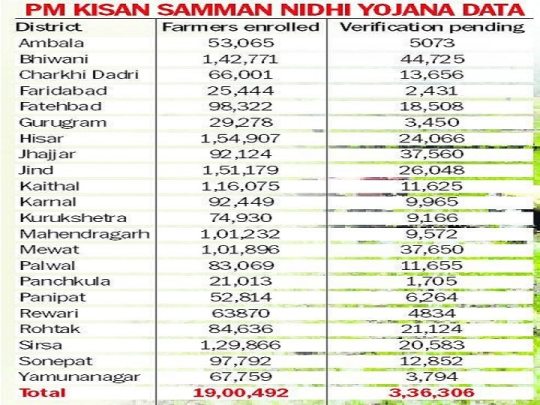
View On WordPress
#Agriculture News#Agriculture Scheme#Government SCheme#pm Kisan#PM Kisan 13th installment#pm kisan ekyc#PM Kisan Haryana Farmers#PM Kisan Land Verification#PM Kisan Samman Nidhi Yojana#PM Kisan Scheme#PM Kisan Yojana#कृषि योजना#कृषि समाचार#पीएम किसान#पीएम किसान 13वीं किस्त#पीएम किसान एक्वायसी#पीएम किसान भूमि सत्यापन#पीएम किसान योजना#पीएम किसान सम्मान निधि योजना#पीएम किसान हरियाणा किसान#सरकारी योजना
0 notes
Text
राजस्थान के आधे किसानों को कैसे फ्री मिल रही है बिजली? सरकार ने विधानसभा में दिया ब्यौरा
राजस्थान के आधे किसानों को कैसे फ्री मिल रही है बिजली? सरकार ने विधानसभा में दिया ब्यौरा
मुख्यमंत्री किसान मित्र ऊर्जा योजना के तहत किसानों को बिजली बिल में हर महीने दी जा रही है 1000 रुपये की छूट. बिजली बिल में दी गई 1324 करोड़ रुपये की सब्सिडी. सरकार ने विधानसभा में दी जानकारी.
राजस्थान के किसानों को राहत.
Image Credit source: File Photo
राजस्थान के ऊर्जा राज्य मंत्री भंवर सिंह भाटी ने दावा किया है कि प्रदेश के 12 लाख 76 हजार कृषि उपभोक्ताओं को बिजली बिलों में 1,324 करोड़ रुपये की…
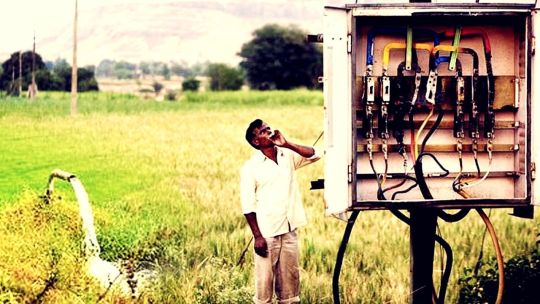
View On WordPress
0 notes
Text
PM Kisan 12 Kist Date: पीएम किसान योजना की 12वीं किस्त कब आएगी? जानिए स्कीम से जुड़ी जरूरी बातें
PM Kisan 12 Kist Date: पीएम किसान योजना की 12वीं किस्त कब आएगी? जानिए स्कीम से जुड़ी जरूरी बातें #PMKisan
PM Kisan Yojana ki 12 Kist Kab Aaegi: Pm Kisan Yojana 12th Installment Date 2022 Status Check Process And Timing, PM kisan scheme ki 12 kist kab tak aayegi, पीएम किसान योजना की 12वीं किस्त कब डालेगी, प्रधानमंत्री किसान सम्मान निधि योजना 12वीं किस्त का पैसा कब मिलेगा, बारहवीं किस्त कब आएगी, पीएम किसान 12वीं किस्त कैसे देखें ? पीएम किसान योजना की अगली किस्त कब आएगी ?
PM Kisan Yojana 12 Kist Date:…

View On WordPress
#Central Government Scheme For Farmers#pm kisan 12th installment#PM Kisan 12th Installment Date#PM Kisan Yojana#PM Kisan Yojana 2022#PM Kisan Yojana ki 12 Kist Kab Aa#PM Kisan Yojana Update#पीएम किसान योजना#पीएम किसान लिस्ट#पीएम किसान सम्मान निधि योजना
0 notes
Text
किसानो की बल्ले बल्ले: धान की जगह दूसरी फसल उगाओ, 7000 रूपए प्रति एकड पाओ
किसानो की बल्ले बल्ले: धान की जगह दूसरी फसल उगाओ, 7000 रूपए प्रति एकड पाओ
हरियाण: खरीफ फसलों की सिंचाई समस्या से किसानों को राहत देने के लिए केंद्र और राज्य सरकारें अपने-अपने स्तर पर विभिन्न योजनाएं चला रही हैं। इसी क्रम में हरियाणा सरकार ने राज्य के किसानों को लाभ पहुंचाने के लिए मेरा पानी मेरी विरासत योजना शुरू की है। इस योजना के तहत राज्य के किसानों को धान की खेती छोड़ने पर सब्सिडी दी जा रही है।
हरियाणा सरकार ने ट्वीट कर जानकारी दी है कि सरकार गिरते भूजल और पानी के…

View On WordPress
#Agriculture news#Kisan news#Government committed to conserve falling groundwater and water#HARYANA NEWS#HINDI NEWS#the central and state governments are running various schemes at their respective levels.#To give relief to the farmers
0 notes
Note
Hi, what do you think about this news?
BBC News - Climate: NFU Cymru opts out of farming scheme over tree planting
Interesting, isn't it?
Here's the thing: it is a fact that we need more trees than we currently have, that Wales is under-forested, and that decades of inaction mean we now have to make big changes fast rather than incremental changes safely. Given that the Welsh Government is actively trying to base modern Welsh identity on environmentalism (we are the only country in the entire world with dedicated sustainability legislation in the form of the Wellbeing of Future Generations Act, and we're third in the world for recycling rates), it was inevitable that they were going to seize the bull by the horns, so to speak, and set a strict target.
In fact, they have past form for this - there's a reason we're third in the world for recycling. I am simplifying this massively and going to make any lawyers reading this wince, but the way EU legislation works is that the member states agree something should be legislated for, the EU makes a directive, and then the member states each interpret and apply that directive how they want into their own laws (sorry lawyers). In the case of recycling, the EU member states collectively decided we needed to get serious about diversion from landfill in 2008 with the Waste Framework Directive, and then the UK chose how to go about that.
But, waste management is a devolved area. So Wales, Scotland, NI and England all got to implement it themselves how they wanted to. England didn't set any specific targets; it was more like "endeavour to be recycling 50% of waste across the country by X year." But the Welsh Government went "Right, lads, here's the targets: 58% by 2015/16, 64% by 2020, and zero waste by 2050. We'll let you pick the recycling bag colours."
(In Swansea it's green for paper, cardboard, metal and glass, pink for plastic, white for garden waste, and you get a special dark green bin for food waste with a locking lid to keep the seagulls out.)
But that meant Welsh councils had to actually move on it, with the result that we smashed those targets. We're now aiming for 70% recycling by 2025, and zero waste might be brought forward to 2030, because the government likes the model of "Shoot for the moon and land among the stars."
So like. It has worked, in the past.
BUT, the problem with setting arbitrary targets like that is that it doesn't always work, and what happens to people who get caught in the gears, so to speak?
In this case, this is a subsidy scheme. It's still in consultation, but if it goes ahead, farmers get money from the public purse for doing something "for the public good" - they need to tree plant 10% of their land, and manage another 10% as wildlife habitat. Currently, this is true for every farm, regardless of its nature. 20% of productive land removed, and you'll be paid to do so.
But, will that work for every farm? No. No it won't. The smaller your set up, the more that 20% is going to bite into profits that the subsidies won't compensate; and what if you only have productive land? A flatish farm, somewhere in Powys, used for crops rather than livestock? 20% of that is very, very different to 20% of an upland sheep farm with sections that are almost impassable and very difficult to round up the sheep from anyway, where you can simply fence off and plant up the slopes to create ffridd and woodlands. It's a one size fits few policy. I fully believe the government saying plenty of farmers are all for it - this will work for many. But for many others, it's simply not financially viable.
But what I find REALLY interesting about that article, actually, is the way the farmers are framing their objections:
(NFU Cymru) president Aled Jones said farmers were prepared to integrate more trees into farming systems - from "shelterbelts, streamside corridors to field corners".
"But we will not take our productive land out of food production for tree-planting," he said.
SHELTERBELTS. That is the Pontbren effect. Pontbren taught us that farmer-led environmental schemes work, and provide additional unexpected benefits including in revenue (it was designed to simply allow the sheep to stay out year round, but the flood control and soil conservation that came with it brought their own benefits - silvopasture, how I love thee.) Now it's there as proof-of-concept, farmers want a piece of that action. They want to be more environmentally sound. But, those trees have to serve an economic purpose, not a solely environmental one; otherwise, it's not going to work for farmers.
And it's very frustrating that the Welsh Government have forgotten that crucial lesson in trying to implement this. But then, as I say, it's true that we need big changes now, and are running out of time for the soft incremental changes. I just think the two could have been married better.
318 notes
·
View notes
Text
This is The Farming Left: these land workers share a politics, united by the concept of food sovereignty: the right to control of local food systems, which originated with farmers in the Global South. ‘We’re talking about equitable access to resources to enable localised food supplies’, explains Fernandes. These organisations are tackling the challenges of access to land in an unequal landscape: the Ecological Land Cooperative, for example, purchases large plots and obtains planning permission for dwellings before parcelling them up into affordable smallholdings.
The Kindling Trust in Manchester is also seeking to foster a new generation of agroecological farmers. The Trust, which was established in 2007, has a veg box scheme and a community garden, and also offers training to new entrants, but there has always been a long-term plan to establish a cooperative farm. Since raising over a million pounds from more than six hundred investors last year, the Trust is looking to purchase a 120-acre farm in the Manchester area. ‘We want people to feel ownership in whatever way they get involved’, explains co-founder Chris Walsh. Whether they are founding members, workers, investors, or tenants, they will all be represented equally on a governing board.
There ‘is a need for a rural radicalism’ of this kind, argues Chris Smaje, farmer and author of A Small Farm Future (2020). ‘It’s about trying to de-commodify land and take it out of speculative ownership’, he explains. For Smaje, who plans to purchase a 20-acre plot to be divided up among several small-scale farmers, the goal is ‘to build a land-based community’ and ultimately ‘generate more of what we need within our own communities’.
While the radical agrarian community in the UK pales in comparison to the strength of conservative farming interests, this fight for land – and the right to use it – is happening on a global scale. The international peasants’ movement is connected through the 200-million strong La Vía Campesina, linking groups such as Brazil’s Movimento dos Trabalhadores Rurais Sem Terra (MST), or ‘Landless Workers’ Movement’, which has, since the 1980s, been occupying land to their counterparts across the world. The world’s farming Left is a David to big agribusiness’s Goliath, the latter having been bolstered by states, major international institutions, and the liberalising of global political economy since the Second World War. From Zapatistas to Scottish crofters, the peasants’ movement is fighting to turn the tide on our social and ecological future before it is too late.
82 notes
·
View notes
Text
Bharat Atta: Aatmanirbhar Anna Yojana - A Boon for the Poor
Thank you for reading this article. We hope you found it informative and useful. If you have any feedback, questions, or comments, please feel free to share them with us. We would love to hear from you and learn from your insights. You can also share this
[email protected] of the Initiative The Bharat Atta: Aatmanirbhar Anna YojanaBenefits of the InitiativeReduced food insecurity:Improved access to food:Increased economic opportunities:Read about the Co-operative MinistryRead How Narendra Modi is Fulfilling the Dreams of India’s Great LeadersChallenges and Limitations of the SchemeRecommendations and Suggestions for ImprovementImproving…

View On WordPress
#bharat atta#bharat atta benefits#bharat atta challenges#bharat atta distribution#bharat atta news#bharat atta online#bharat atta outlets#bharat atta price#bharat atta quality#bharat atta review#bharat atta scheme#demand#farmers#food security#government scheme#India#nutrition#policy#poor#price#quality#subsidy#supply#wheat flour
0 notes
Text
This article isn't solely about the environment, but some of the things there are, so I'll summarize them for you :)
Bhutan and India boosted tiger numbers
According to Bhutan's latest tiger census, tigers have increased their population from 103 to 131 since 2015 - which is a rise of 27 per-cent.
This follows the country's major interventions to help the wild tiger population, including community based tiger conservation programmes, habitat improvement and human-wildlife conflict management projects.
Tigers are, of course, still at risk, but Bhutan's dedication to help and preserve their population is inspiring.
India has also reported a six pre-cent rise in their wild tiger population since last year. The country is believed to be populated by 3,682 tigers now.
Germany’s €49 travel pass
A part of a green new policy in Germany, a €49 (£42)-a-month pass allowing unlimited travel on buses and trains in Germany.
This will result in about 25 per-cent rise (per year) in the numbers of people choosing public transport instead of cars - a low carbon way of transport (according to the national rail operator Deutsche Bahn (DB)).
The Deutschlandticket launched on 1 May as a plan to lower the cost of living and encourage people to take the train instead of driving.
It seems to already have some great results: The Association of German Transport Companies says that almost 10 million people had used the pass by the end of June. DB has also said that trains to holiday destinations were busier this summer.
UK crop yields rose despite a fall in fertiliser use
New data from the UK’s Department for Environment, Food and Rural Affairs (Defra) revealed that UK crop yields rose last year, despite a sharp decline in fossil fuel fertiliser use. Many believed that these fertilisers were necessary, but this data proves that belief wrong.
According to Defra, wheat, barley, oilseed rape and sugar beet yields rose by 2.4 per cent in 2022, while fertiliser use fell by a reported 27 per cent.
These artificial fertilisers are made using natural gas, and because the prices soared in 2022, following Russia's invasion of Ukraine, farmers had to either use much less of them, or embrace more natural alternatives.
England’s plastic bag charge was hailed a success
Since the government in England forced supermarkets to charge 5p a plastic bag, there's been a 98 per-cent reduction of single use plastic bags.
That’s according to figures from the Department for Environment, Food and Rural Affairs, which introduced the charge in 2015, then increased it to 10p in 2021.
Environmental campaigners welcomed the figures, but urged the UK government not to row back on other green policies, including a deposit return scheme for plastic bottles and rules to make plastic producers contribute to clean-up costs. Both policies have been delayed until 2025.
Have a good weekend everyone!
Let me know, what good news have yo read or heard about lately?
#climate change#climate#hope#good news#more to come#climate emergency#news#climate justice#hopeful#positive news
198 notes
·
View notes
Text
Jager filed claims on the falsified lower precipitation measurements, thereby increasing the benefits received from his crop insurance policy. In return for their rain gauge activities, Esch and the two unidentified co-conspirators received payouts, as outlined in the plea agreements.
Incidentally, one of the co-conspirators turned on the group and extorted Esch in particular. The unidentified male threatened to expose the entire enterprise to authorities in exchange for Esch paying the man's bond for release from jail and giving several five-figure payments to the man's girlfriend. Esch, according to his plea agreement, even shrugged off the man's admitted theft of an all-terrain vehicle from Esch in exchange for the man's silence.
In August of 2023, a month before Jager and Esch reached their plea agreements with prosecutors, this unidentified male co-conspirator escaped from prison. This triggered a nationwide manhunt and caused Esch and his family "to go into hiding," as stated in a court document. Two weeks after the escape, the co-conspirator was found dead.
All these "simple american hardworking farmer" guys totally convinced on Hillary Clinton body count shit, folks it's projection they're all murdering each other to cover up their schemes to defraud the government of a couple mil crop insurance
26 notes
·
View notes
Text
At the FTC, a quiet, profound shift on antitrust
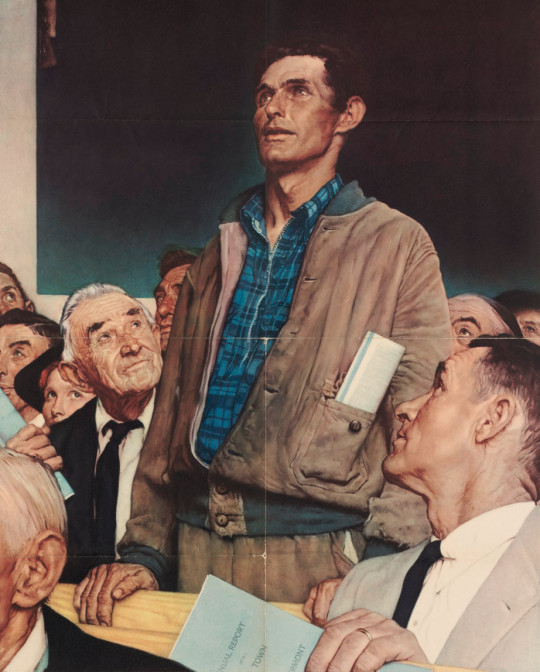
Sometimes, a tiny change in the political process comes along that makes you realize just how far things have come — a change that’s both substantive and symbolic. Something like this terse, six-paragraph memo from the FTC, a deceptively anodyne wrapper for an explosive moment:
https://www.ftc.gov/news-events/events/2022/05/ftc-justice-department-listening-forum-firsthand-effects-mergers-acquisitions-technology
Here’s the crux: “The FTC and DOJ will host a series of listening forums to hear from those who have experienced firsthand the effects of mergers and acquisitions beyond antitrust experts, including consumers, workers, entrepreneurs, start-ups, farmers, investors, and independent businesses.”
If you aren’t chest-deep in weird antitrust lore, this probably seems like it’s par for the course. But believe me, this is a hell of a moment — a moment of restoration, a return to a vital, long-dormant principle in American governance: the idea that corporations should not be allowed to ruin the lives of the people around them.
This was the idea behind antitrust in the first place. As Senator John Sherman said to Congress as he labored to pass his landmark antitrust law in 1890: “If we will not endure a King as a political power we should not endure a King over the production, transportation, and sale of the necessaries of life.”
https://marker.medium.com/we-should-not-endure-a-king-dfef34628153
“If we would not submit to an emperor we should not submit to an autocrat of trade.”
This was the foundation of American antitrust: the idea that companies of a certain scale would, by dint of that size, be in a position to exercise the autocratic control of a monarch, and return America to a tyrannical monarchy cloaked in the pretense of industry.
For nearly a century, this was the bedrock of antitrust enforcement, the idea of “harmful dominance” — that companies could attain a scale that made them a danger to the very idea of democratic control and legitimacy.
Rich people seethed and chafed and schemed to overturn this. They wanted to rule as if they were kings, wanted to avoid the scourge of what Peter Thiel calls “wasteful competition” (“competition is for losers” — P. Thiel). They bankrolled and promoted a deranged conspiracist named Robert Bork — Nixon’s solicitor general — who advanced a truly bizarre theory of antitrust.
Bork was a conspiracist, whose book “The Antitrust Paradox” maintained the historically unsupportable nonsense that what Sherman, Clayton and the other legislators behind America’s antitrust laws really wanted was to block “harmful monopolies” and leave the “efficient monopolies” to grow and rule, as benign kings:
https://pluralistic.net/2021/08/13/post-bork-era/#manne-down
Now, this is untrue. It’s not just untrue, it is unhinged. No reading of either the laws in question or the debates preceding their passage supports this idea. It is a fantasy, alternate history. A lie. But it was a convenient lie, because if it were true, then all the rich people promoting Bork’s fringe theory could create monopolies and rule as kings.
Ronald Reagan bought it. After a failed bid to put Bork on the Supreme Court — he failed his confirmation hearing so spectacularly that anyone who self-immolates in DC is said to be “borked” — Reagan adopted his antitrust theories. They spread around the world thanks to other monsters of the era, Thatcher, Mulroney, Kohl, Pinochet.
The idea infected the judiciary: the cushy Manne seminars, held every summer at a luxury resort, flew in 40% of the Federal bench for indoctrination seminars on Bork’s theories. These judges learned that the only people who should be consulted on antitrust matters are economists, specifically the kind of economist who trades in the kinds of highly abstract, inscrutable mathematical models that Bork and his University of Chicago colleagues specialized in.
Whenever a merger was in question, the companies could pay a Chicago economist to build a model that proved that the merger was “efficient” and thus good for “consumer welfare.” If that merger resulted in prices skyrocketing — the one thing “consumer welfare” was supposed to concern itself with — those same economists could be paid to produce a new model to prove that the price increase wasn’t the result of a monopoly — it was due to oil prices, or labor prices, or the phase of the moon.
Pre-Bork, everyone who was harmed by a monopoly had standing to seek redress from a regulator. If monopolies resulted in pollution, or unsafe working conditions, or corruption, or the annihilation of a city’s character or a town’s way of life, the people affected could tell their stories to a regulator and expect that their experiences would be factors in the calculus as to whether to prosecute the monopoly.
But after Bork, the only people whose input mattered was Chicago-style economists whose mathematical models couldn’t be interrogated by laypeople. They became court sorcerers to the competition regulators, and when petitioners came before the regulator, they would slaughter a goat, read its steaming guts, and pronounce that “consumer welfare” was doing fine. If the petitioner had the temerity to say that they read something different in the offal, the sorcerer could smirk and dismiss them: “Look who thinks he can read the economy in the guts of a goat? He didn’t even get a economics degree from the University of Chicago!”
For 40 years, antitrust has been a coma, sleeping while monopolies formed in every sector, destroying our planet, our regulatory integrity, our national prosperity, our public safety and the confidence of people in their democracies.
But as Stein’s Law has it, “If something cannot go on forever, it will stop.” Something has to give. A new crop of “neo-Brandeisians” — lawyers, economists, activists, workers — has sprouted, insisting that Bork’s ideas have failed us and that they need to be set aside.
One of the most prominent of these is Lina Khan. Today, Khan is the chair of the FTC. Five years ago, she was a third year law student (!), whose landmark law review article, “Amazon’s Antitrust Paradox,” was a scorching indictment of Bork that tore through legal circles and upended orthodoxy:
https://www.yalelawjournal.org/note/amazons-antitrust-paradox
Khan hasn’t been shy about her plans to restore American antitrust to its roots as a doctrine of economic liberty, in which workers and small business-people do not have the course of their lives determined by Sherman’s “autocrats of trade.”
She and the other top Biden antitrust enforcers — Tim Wu in the White House, Jonathan Kanter at the DoJ — worked to produce the Biden executive order on antitrust, a genuine landmark document specifying dozens of specific actions that the admin would take to blunt corporate power. Less than a year on, they’ve hit every milestone in that document.
https://www.whitehouse.gov/briefing-room/presidential-actions/2021/07/09/executive-order-on-promoting-competition-in-the-american-economy/
In January, the FTC and DoJ announced that they would be reviewing the agencies’ merger guidelines — again, something that sounds like business as usual to a layperson but really marks an enormous shift in American politics. The new guidelines will make it much harder for big companies to grow by merging with each other or gobbling up little businesses before they can become competitors.
https://www.ftc.gov/news-events/news/press-releases/2022/01/federal-trade-commission-justice-department-seek-strengthen-enforcement-against-illegal-mergers
And now there’s this week’s hearings, in which the FTC and DoJ will hear from “who have experienced firsthand the effects of mergers and acquisitions beyond antitrust experts, including consumers, workers, entrepreneurs, start-ups, farmers, investors, and independent businesses.”
With the exception of “consumers,” these are the people who, for 40 years, have been laughed out of the room by antitrust enforcers. The people who have been told that they have nothing to say when it comes to the way that giant corporations undermine our quality of life, freedom of action, and economic chances.
This may sound like normal activity for a competition regulator (because it should be normal), but this is extraordinary. For the first time in a generation and a half — in ten presidential administrations — everyday people will get a say on whether corporate power should be blunted.
This is huge.
[Image ID: Norman Rockwell's WPA painting 'Freedom of Speech,' depicting a working-class speaker rising to speak in a white-collar crowd at a town meeting.]
942 notes
·
View notes
Note
Would you put Louis XIV as overrated?
Oof, that's a tough one.
It's particularly hard to answer because the reign of the Sun King also saw the tenure of some of the most influential chief ministers in French history: Mazarin, and Colbert.

While perhaps not quite as famous as a certain cardinal whose schemes kept getting foiled by the Three Musketeers, these guys were world-historically important.
Mazarin was Richelieu's political heir, and brought his predecessor's policy of using the Thirty Years War as a way to break the back of Hapsburg dominance to a successful conclusion. The Peace of Westphalia not only served as the foundation for modern international relations, but also expanded France's position in Alsace and the Rhineland - especially when Mazarin pulled off an anti-Hapsburg alliance with the new League of the Rhine.
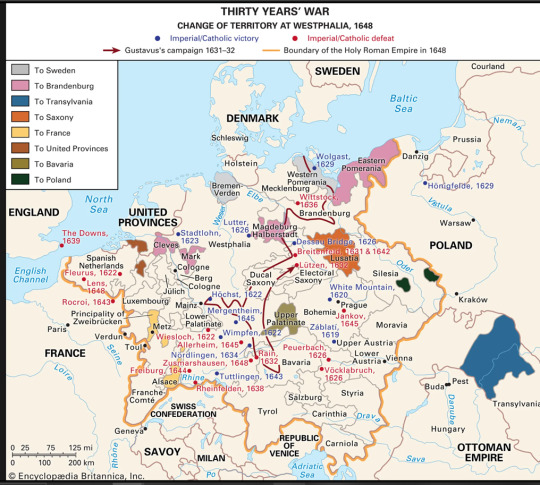
At the same time that France was winning the Franco-Spanish War, which won them a big chunk of territory in the Low Countries around Artois, Luxembourg, and parts of Flanders, and all of the territory north of the Pyrenees Mountains including French Catalonia. It also got Louis XIV the hand of Maria Teresa, which would eventually create the catalyst for the War of Spanish Succession and the War of Austrian Succession...
And while Mazarin was doing all of this, he was also busy crushing the Fronde uprising led by le Grand Condé, which he eventually accomplished in 1653, and creating a formidble system of centralized royal government through the intendants that ended the power of the feudal nobility.

As for Colbert, he was the guy who figured out how to pay for all of this. The single biggest reason why economists need to shut the fuck up when they talk about mercantilism, Colbert was the financial and economic genius of his age. Remember all those canals I'm so crazy about? Colbert built them. Specifically, he was responsible for the Canal des Deux Mers, transforming France's economy by linking the Mediterranean to the Atlantic.

He also turbo-charged France's economic development by restructing public debt to reduce interest payments and cracking down on tax farmers, reforming (although not ultimately solving) the taxation system of the Ancien Régime by using indirect taxes to get around tax evasion by the First and Second Estate, equalizing (but not ending) internal customs duties, and putting the power of the state into supporting French commerce and manufacturing. This included significant tariffs to support domestic producers, direct public investments into lace and silk manufacturing, and the creation of joint-stock corporations like the French East India Company. (This also meant Colbert's direct promotion of the slave trade and the Code Noir in order to generate hugely profitable investments in Haitian sugar and tobacco plantations for import into France and the rest of Europe.)

This makes it a little difficult to separate out what credit belongs to these guys versus the guy who hired them. What I can say is that Louis was directly responsible for Versailles, but also for the revocation of the Edict of Nantes.
#history#historical analysis#cardinal richelieu#cardinal mazarin#jean baptise colbert#louis xiv#versailles#french history#early modern history#economic development#mercantilism#political economy#early modern state-building#early modern period#early modern europe
30 notes
·
View notes
Text
PM Kisan: किसानों का डाटाबेस बनाने में जुटी सरकार, योजनाओं का आसानी से फायदा ले पाएंगे अन्नदाता
PM Kisan: किसानों का डाटाबेस बनाने में जुटी सरकार, योजनाओं का आसानी से फायदा ले पाएंगे अन्नदाता
केंद्रीय कृषि मंत्रालय में पीएम किसान स्कीम के डाटाबेस के सदुपयोग को लेकर हुई बैठक. डाटाबेस में किसानों के लैंड रिकॉर्ड, आधार और बैंक खाते सहित सभी जानकारियां होंगी. योजना की 12वीं किस्त से पहले अहम मानी जा रही है राज्यों के साथ हुई चर्चा.
पीएम किसान योजना के तहत सालाना 6000 रुपये मिलते हैं.
Image Credit source: TV9 Digital
केंद्रीय कृषि मंत्रालय ने मोदी सरकार की सबसे बड़ी किसान योजना…
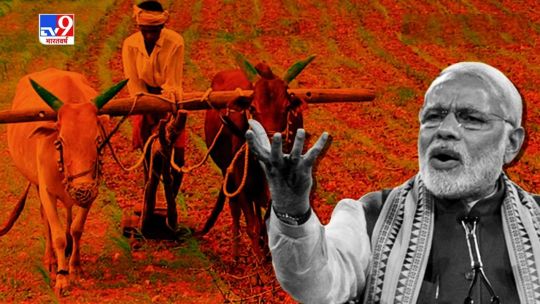
View On WordPress
0 notes
Text
सिंचाई यंत्र सब्सिडी 2022: किसानों को सिंचाई पाइप लाइन खरीदने पर मिलेगी 60 प्रतिशत सब्सिडी, ऐसे उठाएं योजना का लाभ
सिंचाई यंत्र सब्सिडी योजना 2022 (Sinchai Pipeline Anudan Yojana) : देश के कई राज्य गिरते भूजल स्तर की समस्या से जूझ रहे है। वर्तमान में खरीफ फसलों की बुवाई का कार्य शुरू हो चूका है। ऐसे में किसानों (Farmers) को सिंचाई की समस्या का सामना करना पड़ रहा है। किसानों को सिचाई की समस्या से निजात दिलाने के लिए केन्द्र एवं राज्य सरकारों द्वारा अपने-अपने स्तर पर लगातार प्रयास किये जा रहे हैं। सरकारी योजनाओं…

View On WordPress
#Government Scheme For Farmers#Irrigation Machine Subsidy#किसान योजना#किसान समाचार#पाइप लाइन अनुदान#पाइप लाइन सब्सिडी#राजस्थान किसान समाचार#सिंचाई यंत्र सब्सिडी
0 notes